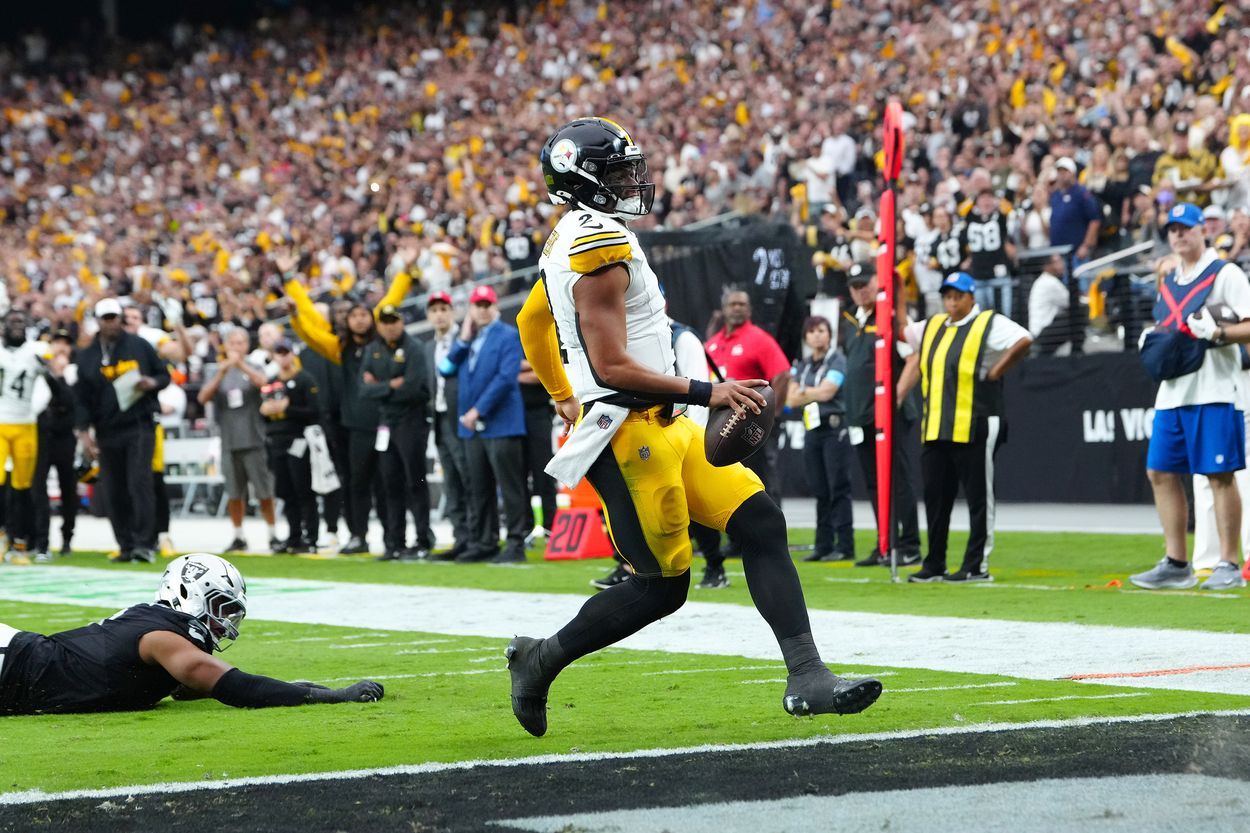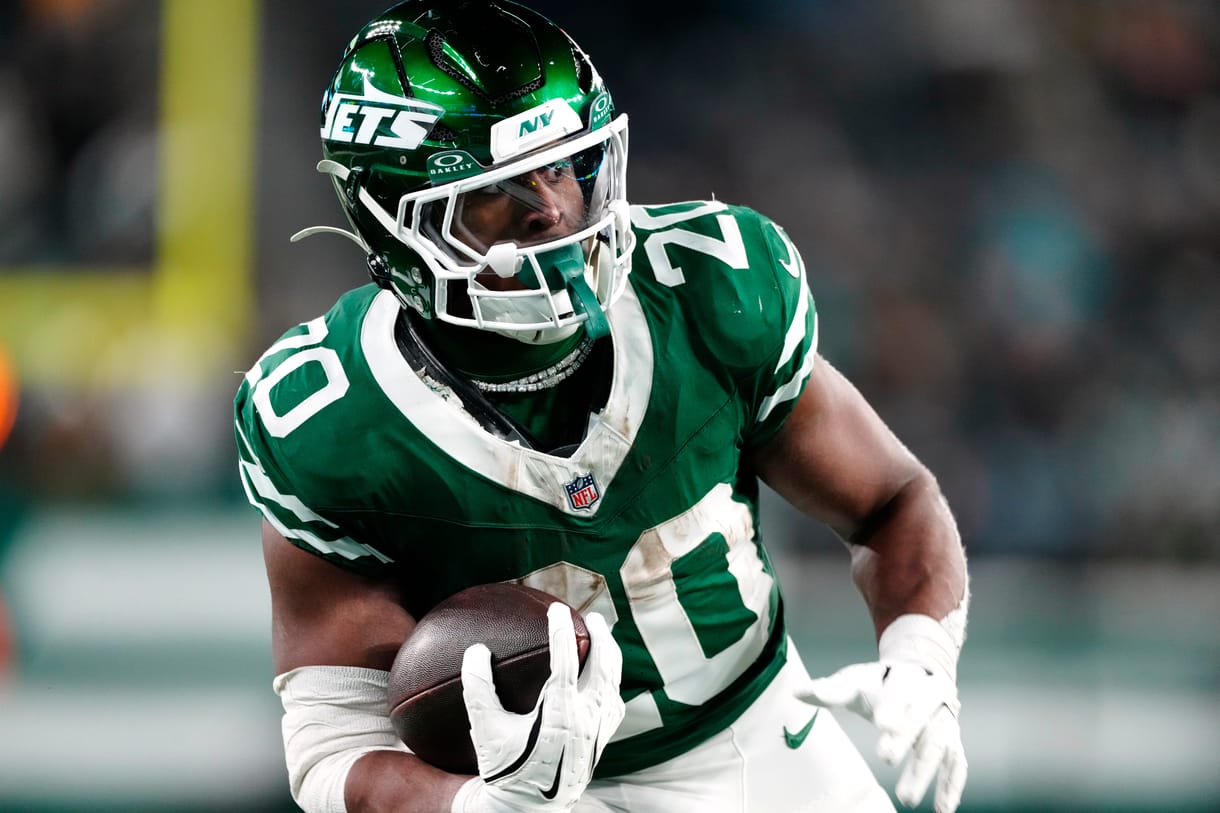
For years, the New York Jets have relied on traditional quarterback play to move the chains, even as the rest of the league evolved.
That’s about to change.
With a new signal caller under center and a clear shift in strategy, the Jets are leaning into a more dynamic identity—one built around the run.
And they may be on the brink of building one of the most explosive ground games in football.

A new kind of quarterback unlocks a new playbook
Aaron Rodgers brought leadership and experience to the Jets, but his game was rooted in structure, timing, and arm talent.
Justin Fields brings something entirely different—chaos, speed, and improvisation.
In just six starts last season, Fields rushed for 289 yards and five touchdowns, flashing his game-breaking mobility even in limited opportunities.
That kind of athleticism puts pressure on defenses in a way Rodgers never could.
Fields isn’t just a quarterback—he’s a threat every time the play breaks down, and the Jets plan to build around that.
Pairing Fields with Hall creates nightmare potential
Breece Hall is already one of the league’s most explosive backs when healthy.
Now imagine him sharing a backfield with Fields, forcing linebackers to hesitate and safeties to crash down.
Defensive coordinators are going to lose sleep preparing for the zone reads, bootlegs, and RPOs the Jets can now deploy.
It’s a fundamental shift from the drop-back style they’ve run the past two years.
This isn’t just a mobile quarterback in a pass-first system—this is a ground-based offense with real bite.

Drafting speed to complement power
The Jets doubled down on their run-first mindset by drafting Aran Smith out of Georgia in the fourth round.
Smith is a gadget piece, a lightning-fast weapon who can motion across the formation, take jet sweeps, and stretch defenses horizontally.
He won’t carry the offense, but he’ll add another layer of unpredictability.
In the open field, Smith’s speed changes angles—and that’s all Fields and Hall need to break games open.
The arm talent is still there
Fields is not just a runner.
Before being replaced by Russell Wilson in Pittsburgh, he completed 65.4% of his passes for 1,106 yards and five touchdowns.
He looked sharp early in the season, operating efficiently and pushing the ball downfield when needed.
But once Wilson was cleared to start, the Steelers made the move they always intended.
Now, Fields lands in New York with a two-year, $40 million contract and a real opportunity to prove he belongs.
One season to prove everything
Despite the new system and surrounding talent, 2025 is a trial run for Fields.
If he thrives, he could earn a long-term extension and become the face of the franchise.
If not, the Jets have the flexibility to pivot in 2026 and take a quarterback early in the draft.
It’s a one-year audition wrapped in a team-wide overhaul—and it might be the most exciting version of Jets football in years.
Popular Reading
Jets are going to deploy new offensive toy early and often in 2025